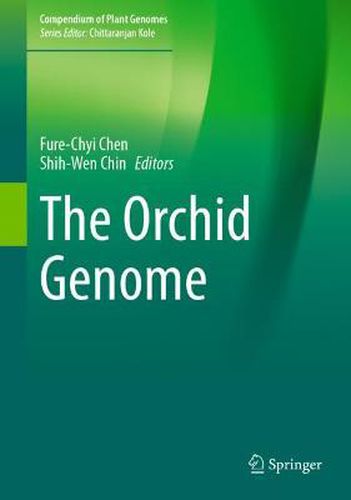Readings Newsletter
Become a Readings Member to make your shopping experience even easier.
Sign in or sign up for free!
You’re not far away from qualifying for FREE standard shipping within Australia
You’ve qualified for FREE standard shipping within Australia
The cart is loading…






This book provides information on genome complexity and evolution, transcriptome analysis, miRNome, simple sequence repeats, genome relationships, molecular cytogenetics, polyploidy induction and application, flower and embryo development. Orchids account for a great part of the worldwide floriculture trade both as cut flowers and as potted plants and are assessed to comprise around 10% of global fresh cut flower trade. A better understanding of the basic botanical characteristics, flower regulation, molecular cytogenetics, karyotypes and DNA content of important orchids will aid in the efficient development of new cultivars. The book also describes the composition, expression and function of various microRNAs and simple sequence repeats. Information on their involvement in all aspects of plant growth and development will aid functional genomics studies.
$9.00 standard shipping within Australia
FREE standard shipping within Australia for orders over $100.00
Express & International shipping calculated at checkout
This book provides information on genome complexity and evolution, transcriptome analysis, miRNome, simple sequence repeats, genome relationships, molecular cytogenetics, polyploidy induction and application, flower and embryo development. Orchids account for a great part of the worldwide floriculture trade both as cut flowers and as potted plants and are assessed to comprise around 10% of global fresh cut flower trade. A better understanding of the basic botanical characteristics, flower regulation, molecular cytogenetics, karyotypes and DNA content of important orchids will aid in the efficient development of new cultivars. The book also describes the composition, expression and function of various microRNAs and simple sequence repeats. Information on their involvement in all aspects of plant growth and development will aid functional genomics studies.